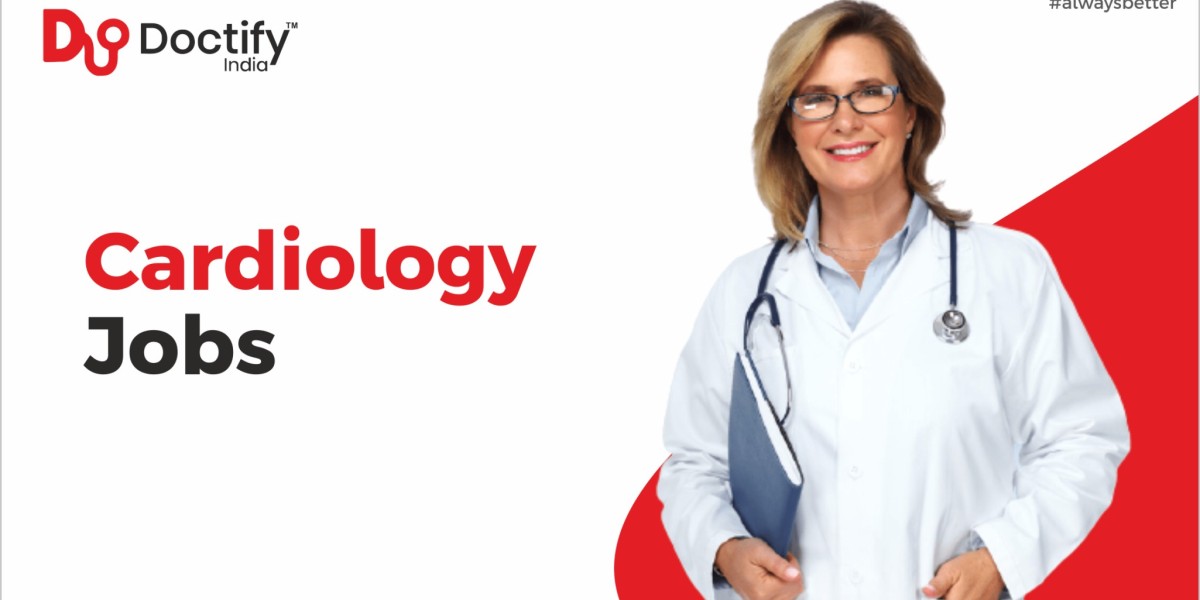Cardiology is a dynamic and ever-evolving field of medicine, and as such, the role of a cardiologist offers numerous opportunities for professional development and continuing education. With medical advancements and new research continuously reshaping the landscape of cardiovascular care, staying up to date with the latest techniques, treatments, and technologies is crucial for providing the best care to patients. Whether through formal education, certifications, research involvement, or networking, cardiologists have various ways to enhance their skills and knowledge throughout their careers.
1. Fellowship Programs and Subspecialty Training
After completing a residency in internal medicine, many cardiologists choose to pursue further specialization through fellowship programs. Fellowships offer cardiologists the opportunity to gain in-depth knowledge and hands-on experience in specific areas of cardiology. These include:
Interventional Cardiology: Focuses on catheter-based procedures such as angioplasty, stent placement, and coronary interventions.
Electrophysiology: Specializes in diagnosing and treating abnormal heart rhythms through techniques like catheter ablation and pacemaker/defibrillator implantation.
Heart Failure: Concentrates on managing patients with advanced heart failure, including those requiring mechanical circulatory support or heart transplants.
Pediatric Cardiology: Focuses on diagnosing and treating cardiovascular conditions in children, including congenital heart defects.
These fellowship programs typically last 3–4 years and are an excellent opportunity for cardiologists to gain expertise in a specific area, providing them with the skills needed to deliver specialized care and pursue academic or leadership roles in their chosen subspecialty.
2. Board Certifications and Recertification
Board certification is a mark of excellence and proficiency in a specific area of medicine. Cardiologists typically become board-certified through the American Board of Internal Medicine (ABIM) after completing their residency and fellowship. However, board certification is not a one-time achievement; it requires maintenance through continued professional development and periodic recertification.
The ABIM offers cardiologists the opportunity to earn board certifications in various subspecialties, such as:
- Cardiovascular Disease
- Interventional Cardiology
- Clinical Cardiac Electrophysiology
- Advanced Heart Failure and Transplant Cardiology
To maintain certification, cardiologists must complete ongoing continuing medical education (CME) credits, pass examinations, and demonstrate their continued competence. This ensures that they remain current on the latest advancements in their field.
3. Continuing Medical Education (CME)
CME is an essential component of a cardiologist’s professional development. It is designed to help healthcare professionals stay informed about new treatments, technologies, and research developments. Cardiologists are required to earn a set number of CME credits each year to maintain their licensure and board certification.
CME opportunities come in various forms, including:
Conferences and Workshops: Cardiologists can attend national and international conferences such as the American College of Cardiology (ACC) Annual Scientific Session, the American Heart Association (AHA) Scientific Sessions, and specialized cardiology workshops. These events provide access to the latest research, treatment protocols, and innovations in cardiovascular care.
Online CME Courses: Many professional organizations offer online courses that allow cardiologists to earn CME credits at their own pace. These courses cover a broad range of topics, from basic cardiovascular physiology to the latest in interventional techniques and personalized medicine.
Journal Subscriptions and Webinars: Cardiologists often subscribe to medical journals such as Circulation or the Journal of the American College of Cardiology (JACC), which provide the latest research in the field. Many of these journals also offer online webinars that are CME-accredited.
4. Research Opportunities and Clinical Trials
For cardiologists interested in advancing their careers and contributing to the field, participating in research is an invaluable opportunity. Research involvement allows cardiologists to explore new treatment modalities, improve patient outcomes, and shape the future of cardiovascular care.
Cardiologists can engage in:
Clinical Trials: Conducting or participating in clinical trials helps to test the effectiveness of new drugs, devices, or procedures. This involvement can be incredibly fulfilling, as it directly impacts patient care and may lead to groundbreaking developments in cardiology.
Basic and Translational Research: Cardiologists involved in basic science research may explore the underlying mechanisms of cardiovascular diseases, such as heart failure or atherosclerosis. Translational research bridges the gap between laboratory findings and clinical applications, providing cardiologists with the opportunity to develop new therapies or improve existing ones.
Academic Roles: Cardiologists may choose to work in academic settings, conducting research while also teaching the next generation of medical professionals. Academic positions can provide opportunities for leadership, mentorship, and collaboration with other experts in the field.
5. Networking and Professional Associations
Cardiologists also have ample opportunities for professional growth through networking and joining professional associations. Being a member of organizations like the American College of Cardiology (ACC), American Heart Association (AHA), or the European Society of Cardiology (ESC) allows cardiologists to stay connected with their peers, share knowledge, and learn about new trends in the field. These associations often host conferences, webinars, and forums for cardiologists to engage with thought leaders and experts.
Through these associations, cardiologists can also take part in advocacy efforts, shaping healthcare policies related to cardiovascular health.
6. Mentorship and Collaborative Learning
Cardiologists often benefit from mentorship, both as mentees and as mentors themselves. Experienced cardiologists provide valuable guidance to those just starting their careers, helping them navigate the complexities of clinical practice, research, and patient care. Likewise, working alongside colleagues in multidisciplinary teams allows cardiologists to learn from other specialists, fostering a collaborative approach to patient care and professional development.
Conclusion
The field of cardiology jobs offers a wealth of opportunities for ongoing professional development and continuing education. From fellowship programs and subspecialty training to CME courses, board recertification, and research opportunities, cardiologists are encouraged and supported in their efforts to remain at the forefront of medical advancements. This commitment to lifelong learning not only enhances the careers of cardiologists but also ensures that patients receive the most up-to-date and effective care available. By continuously expanding their knowledge and skills, cardiologists can significantly improve patient outcomes and contribute to the future of cardiovascular medicine.









